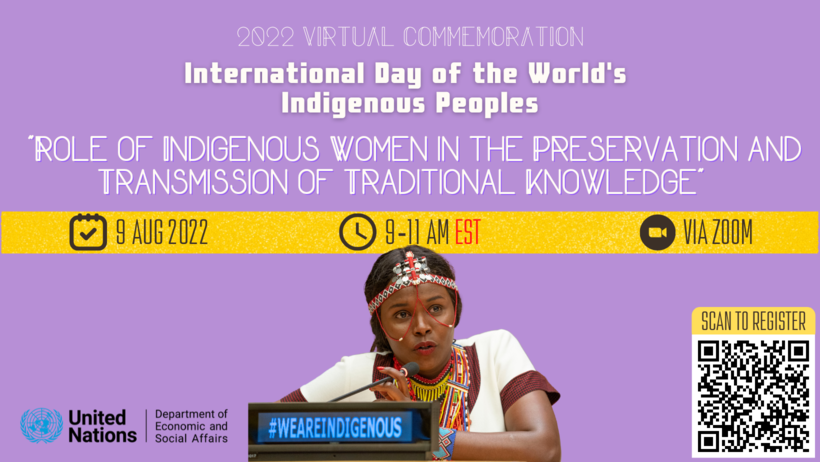New York, 12 July 2022 (TDI): The United Nations Department of Economic and Social Affairs (UN DESA) prepares to celebrate World Indigenous Day 2022 on 9 August.
#IndigenousDay is coming up on 9 August! 🎉
As we’re counting down to celebrate, join us by using these hashtags to activate the special Twitter emojis just launched! #WeAreIndigenouspic.twitter.com/V8CLOJ0AIB— UN DESA (@UNDESA) July 11, 2022
UN DESA, therefore, invited people to join on Twitter through the use of hashtags for the day and turn on the special new emojis.
Noteworthy, World Indigenous Day is celebrated every year on the 9th of August and it brings attention to the concerns of indigenous people across the world.
Thus, the International Day observance will be taking place online on 9 August this year from 9:00 am to 11:00 am Eastern Standard Time (EST).
For this year the theme is ‘The Role of Indigenous Women in the Preservation and Transmission of Traditional Knowledge’.
The UN General Assembly agreed that the International Day of the World’s Indigenous People will be marked annually on 9 August when a resolution 49/214 was passed on 23 December 1994.
Consequently, on August 9, the world honors its indigenous communities with the International Day of the World’s Indigenous People.
Indigenous people
As noted, there are over 476 million indigenous peoples living in 90 countries across the world. Thus, accounting for 6.2 percent of the global population.
Most importantly, Indigenous peoples have a vast diversity of unique cultures, traditions, languages, and knowledge systems.
In line with this, they have a special relationship with their lands and hold diverse concepts of development founded on their own worldviews and priorities.
Various indigenous communities have faced difficulties and found themselves in dire situations.
Thus, numerous indigenous people come under the authority of central governments that exercise control over their lands, territories, and resources.
Furthermore, the COVID-19 pandemic exacerbated many inequalities within these groups. This involves affected groups of indigenous peoples worldwide. Specifically, the ones that already experience poverty, health issues, and institutional and financial insecurity.
However, indigenous people have shown extraordinary examples of good governance. That is, ranging from the Haudenosaunee to the existing Sámi parliaments in Finland, Sweden, and Norway.
In conclusion, for various indigenous groups, the systems that their ancestors followed for years have stood the test of time. Specifically, through serving them with positive outcomes to date.
Student of BS International Relations in Kinnaird College for Women. Currently, working in 'TDI' as a contributor.








